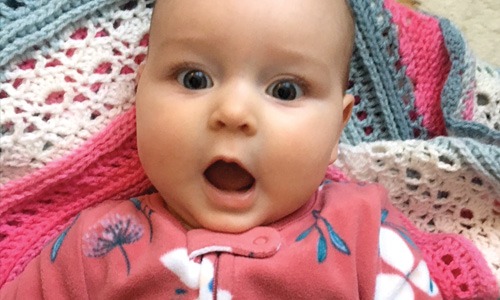Healthy Heart Development
 The number of babies born with heart defects has been on the rise in Alberta over the last decade. Congenital Heart Defects (CHDs) almost always lead to lifelong illness and often require emergency surgical intervention shortly after birth. Sadly, CHDs are also the leading cause of newborn mortality.
The number of babies born with heart defects has been on the rise in Alberta over the last decade. Congenital Heart Defects (CHDs) almost always lead to lifelong illness and often require emergency surgical intervention shortly after birth. Sadly, CHDs are also the leading cause of newborn mortality.
What if there was a simple blood test that could lead to earlier diagnosis, potential treatments or even preventative interventions? Researchers at the Alberta Children’s Hospital Research Institute believe answers may be found – not in the heart itself – but in the genes of the placenta. This groundbreaking hypothesis has the potential to revolutionize fundamental theories of human development.
With your support, a multidisciplinary team of Calgary-based biologists, geneticists, cardiologists, and those with stem cell expertise will seek to uncover the connection between the placenta and healthy heart development. They will accomplish this by:
- Identifying the placental genes related to heart formation and then developing appropriate mouse or zebrafish models to functionally assess the genes for their impact on cardiovascular development.
- Determining the key elements that regulate expression of “placenta-heart” genes in biological models.
- Applying learnings from above to set the stage for earlier diagnosis and intervention through the identification of biomarkers in standard blood draws during pregnancy for potential screening of CHDs well before birth. If abnormalities are found, performing a drug screen using patient specific stem cells has the potential to accelerate and improve clinical intervention for the baby in utero.
They ultimately aspire to develop a non-invasive screening approach to identify pregnancies at risk of CHDs. Not only would this be a more easily accessible test for women outside of urban centres, it would also improve the targeted use of ultrasound and genetic screening in at-risk pregnancies, resulting in better pregnancy care and delivery planning. Findings from this innovative project will make a life-saving and life-changing difference for nearly 1,000 babies born each year with CHD across our province.
Sign up for our emails!